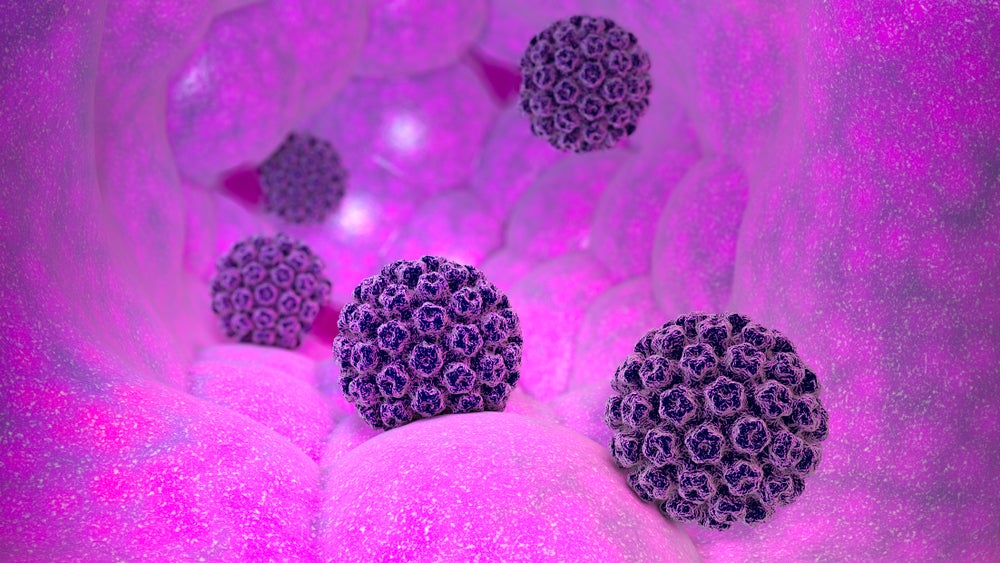
The US Food and Drug Administration (FDA) has expanded Keytruda’s use (pembrolizumab) in combination with chemoradiotherapy to certain advanced types of cervical cancer.
Patients with FIGO (International Federation of Gynecology and Obstetrics) 2014 Stage III-IVA cervical cancer will now be eligible for MSD’s blockbuster immunotherapy.
MSD states the FDA nod means its drug is the only anti-PD-1 therapy and chemoradiotherapy combination approval for newly diagnosed US patients with high-risk locally advanced cervical cancer, according to a 12 January press release.
Keytruda already has two FDA approvals in cervical cancer for patients who express PD-L1 tumours. One as a first-line therapy in combination with chemotherapy, with or without bevacizumab, the other as a single agent second-line therapy in patients for whom chemotherapy has not worked.
The agency based its decision on results from the Phase III KEYNOTE-A18 trial (NCT04221945). Patients who received the combo therapy demonstrated a progression-free survival (PFS) – the risk of disease progression or death was reduced by 41%. MSD said the FIGO 2014 Stage III-IVA disease sub-group was the main driver of PFS improvement. The trial enrolled 1,0060 cervical cancer patients who had not received surgery, radiation, or systemic therapy for treatment.
Cervical cancer is the fourth most common cancer in women globally, according to the World Health Organisation. Most cases are linked to infection with high-risk human papillomaviruses (HPV).
Access the most comprehensive Company Profiles on the market, powered by GlobalData. Save hours of research. Gain competitive edge.

Your download email will arrive shortly
We are confident about the unique quality of our Company Profiles. However, we want you to make the most beneficial decision for your business, so we offer a free sample that you can download by submitting the below form
By GlobalData
MSD Research Laboratories’ global clinical development vice president Dr. Gursel Aktan said: “This approval provides newly diagnosed patients with an anti-PD-1-based treatment option that has the potential to reduce the risk of disease progression or death compared to chemoradiotherapy alone.”
Keytruda is MSD’s best-selling drug and is one of the most lucrative drugs worldwide. In the US, it is now approved in 39 indications. In 2022, Keytruda generated $20.9bn in global sales for MSD, up 22% from the year before.
Keytruda is set to lose its patent protection in 2028, however, with the market likely to become flooded with lower-cost biosimilars, echoing what happened with AbbVie’s Humira (adalimumab).
GlobalData’s Pharma Intelligence Centre forecasts peak sales of $33.7bn in 2028.
GlobalData is the parent company of Pharmaceutical Technology.
MSD has been busy shoring up future revenue streams in oncology as a result, with the big pharma acquiring T-cell engager specialist Harpoon Therapeutics for $680m in January 2024. In October 2023, the company also entered an agreement to develop and commercialise three of Daiichi Sankyo’s antibody drug conjugate (ADC) in a deal that could be worth up to $22bn.

Sign up for our daily news round-up!
Give your business an edge with our leading industry insights.
